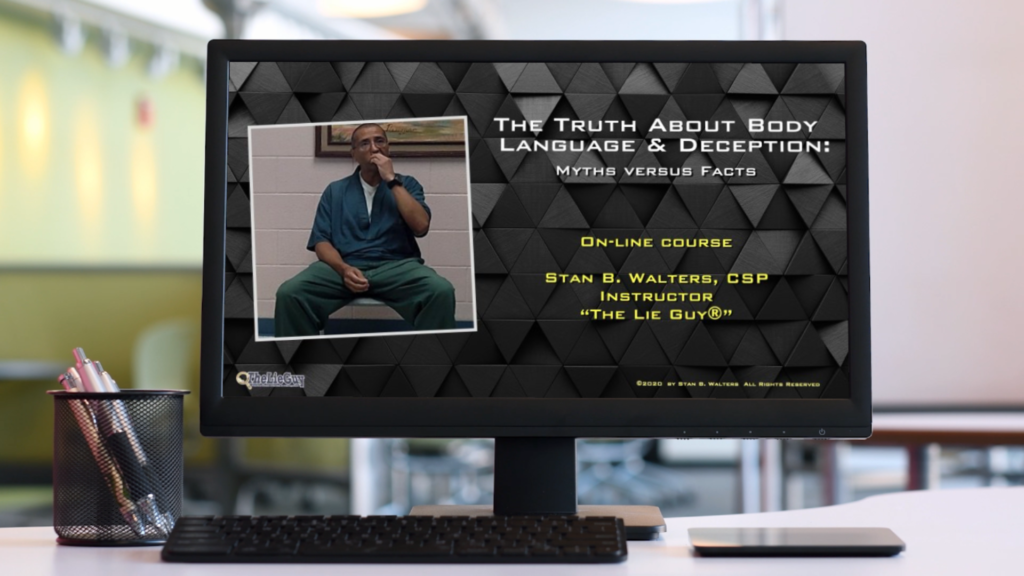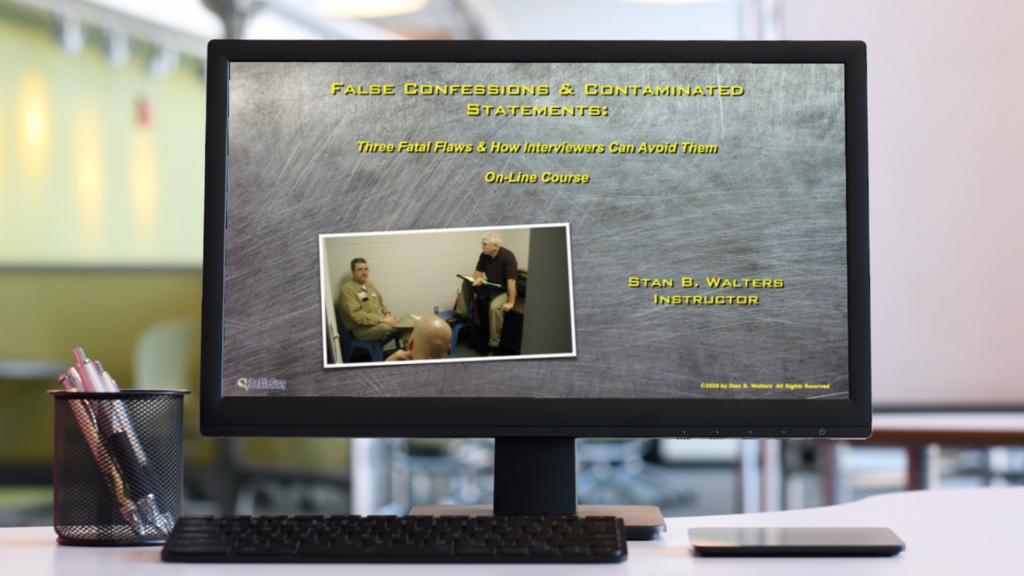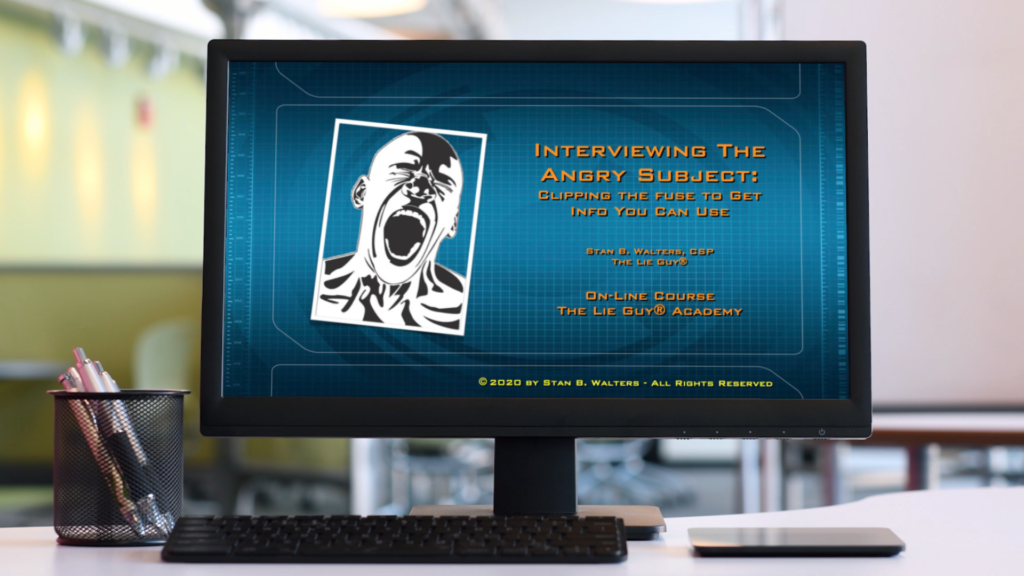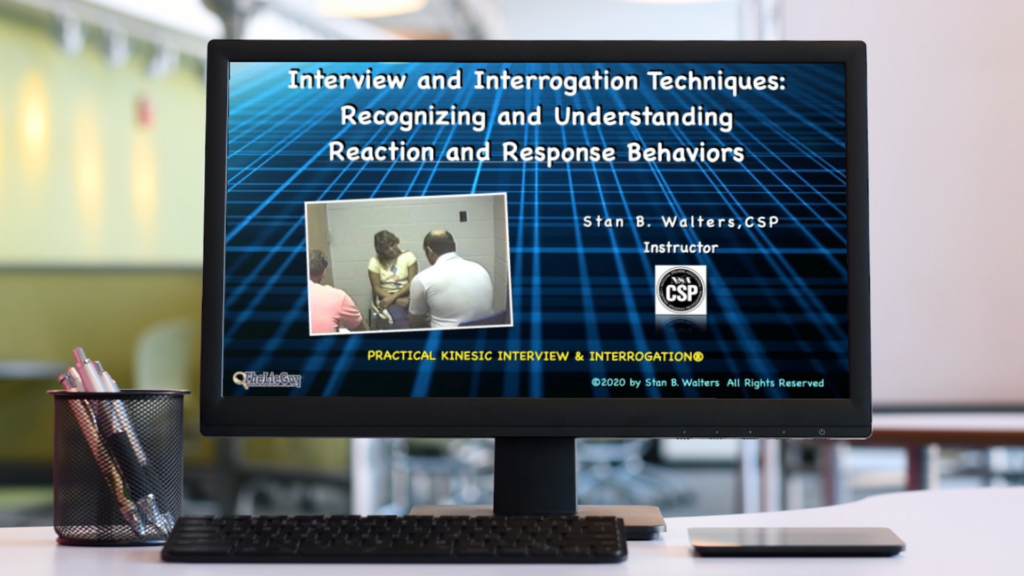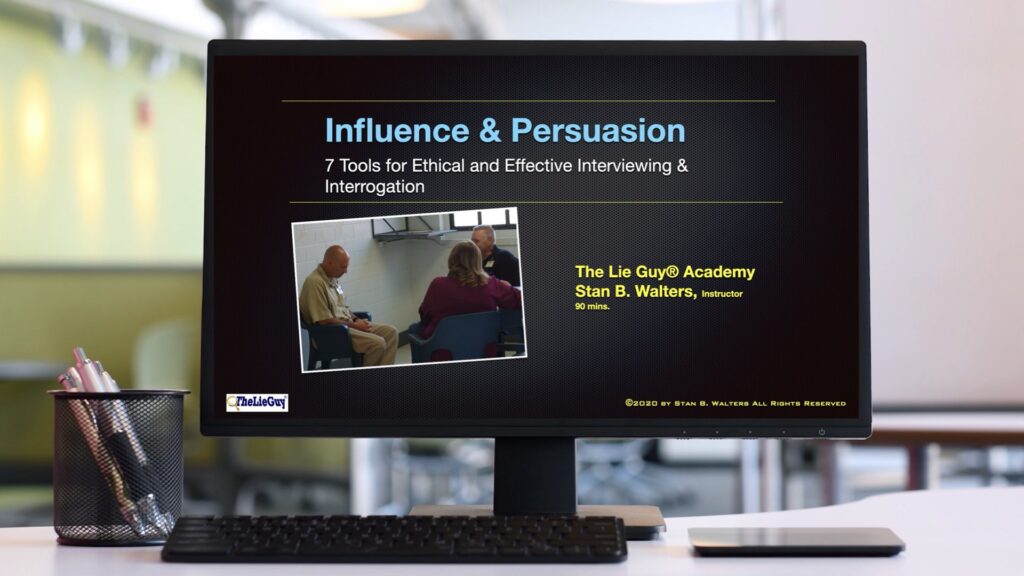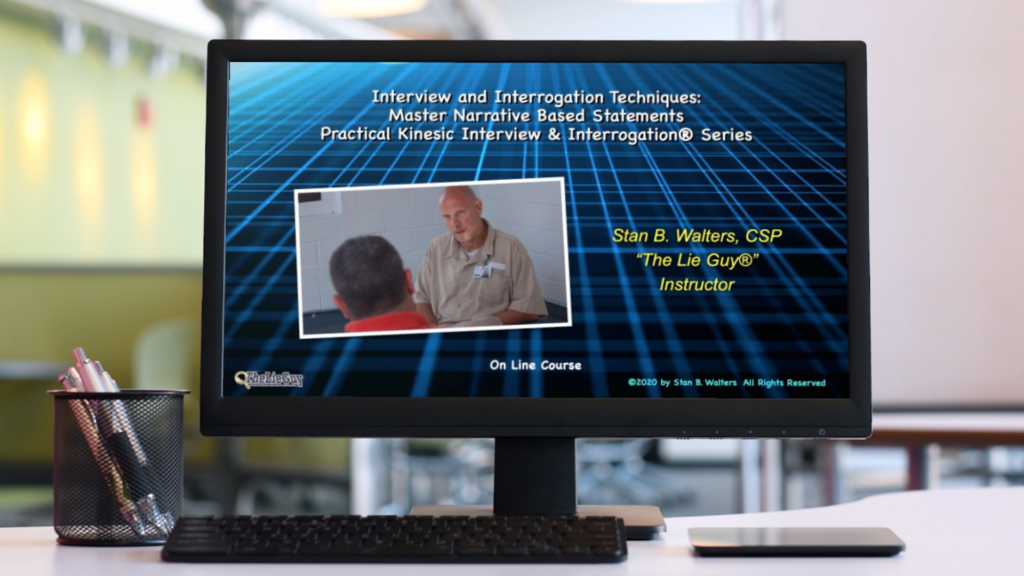Online Interview and Interrogation Courses
Stan's Online Interview and Interrogation Training Courses
Now Available at The Lie Guy® Academy
Add to your skills to dramatically improve as interviewer!
For decades interviewers have focused their attention on body language as the tool for spotting deception in human behavior. Many of these same interviewers claim to be very accurate at spotting deception, when in fact research shows they perform worse than the general population. According to analysis, the root cause of the problem is the myths about body language and deception that is taught in our police academies. This 1 hour on-line course will expose some of the myths and uncover the truth about body language and deception during interviewing and interrogation.
In this session you will learn:
– The real truth about eye contact and eye movement and deception.
– The most common body language deception cue myths.
– Discover the concept of “like and dislike” reactions.
– About the true source of body language cues.
– How to reduce time spent on analysis.
– Cultural and social influence on nonverbal cues.
Of all the cases of wrongful conviction overturned using DNA, 25% were caused by false confessions. In 75% of the overturned cases, faulty and contaminated victim and witness interviews were a major contributing factor. In nearly every case, the interviewer committed three fatal errors that contributed to these miscarriages of justice. What are those errors and how can they be avoided?
In this session you will learn –
– Just how and why do we all misread lie signs.
– How you can overcome deception miscalculation.
– What does a guilt assumptive interview sound like and its direct link to coercion.
– Just what is a pre-conception bias and how does it cause contamination errors.
– What are the remedies to the three fatal flaws.
One of the most difficult situations for an interviewer to overcome is the angry subject. Interviews of this type will often degrade into a non-productive confrontation. The interviewer can change the outcome during interviewing and interrogation of such subjects by understanding why subjects use anger, what the various forms of anger look and sound like and how to correctly respond to an angry subject and bring the interview back under control and be successful.
In this session you will learn –
– The origin of subject anger.
– Recognize types of anger exhibited by subjects.
– How to prevent the interview from deteriorating further.
– How & why the interviewer should avoid the anger vortex.
– Smart tactics interviewers can use to bring the subject and interview back under control.
Interview and interrogation techniques come in a wide range of philosophies and methodologies. The problem is that the vast majority are not based on any behavioral science research.
When studied in depth and using active and adjudicated cases, research shows that interviewers can get consistent positive results.
This course focuses on one of those particular skills – accurately recognizing and adjusting to the subject’s cognitive and emotional changes.
During this interview and interrogation techniques training course
Your takeaways will include:
- Recognize and understand the distinction between cognitive and emotional behaviors.
- You will understand the difference between a subject who is reacting versus a subject who is responding.
- You will understand how a reaction behavior affects an interview differently than a response behavior by your subjects.
- You will learn the purpose behind your subject showing the following behaviors, how to accurately identify that behavior and the appropriate tactics you need to use.
It’s no secret …
You just can’t say just ANYTHING in the interview room…
you’ve got to say the right things the right way!
You’ve got to tap into how a subject’s mind works…
if you want to get cooperation.
The investigators with the highest compliance rates don’t always have the best cases… They’ve just got the best persuasion techniques.
Increase your compliance Rate
. Use advanced ethical and effective interview and interrogation techniques.
Learn the techniques that can put you in an elite
group of successful interrogators.
This Interview and Interrogation Techniques course will assist any investigator who wants or needs to improve their skills at obtaining narrative-based statements.
Narrative-based interviewing has proven to be the most productive method for information gathering from victims, witnesses and subjects.
Your Takeaways:
- Master obtaining narrative-based statements.
- You will be able to recover up to 60% more information from victim, witness & subject interviews.
- Learn how to obtain content rich victim and witness statements.
- You’ll learn how to increase your chances of spotting normally scarce and faint signals of possible deception.
- Increase your ability to identify information that subjects have omitted from their statements.
- You will also learn how to avoid contaminating victim and witness statements.


